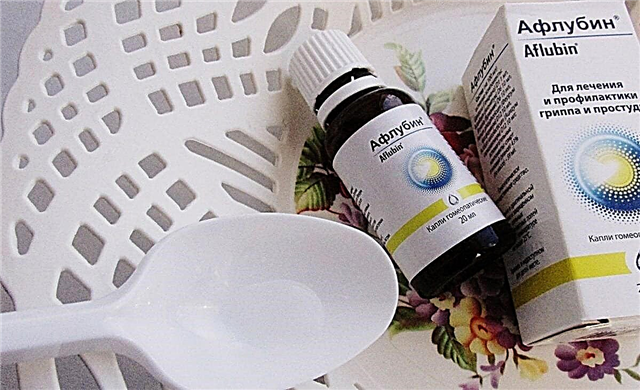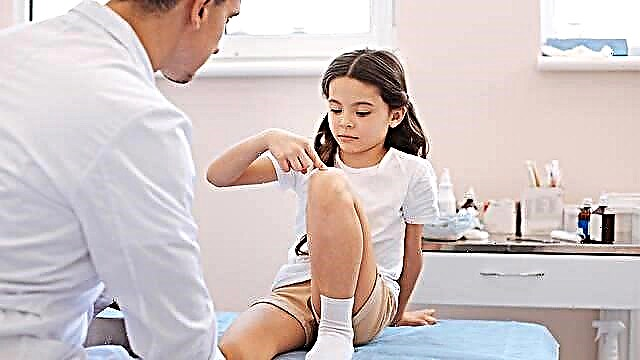
All mothers rejoice at the next "hatching" tooth of their fidget, but in some children, when their milk teeth are teething, the general condition worsens, which is very upsetting for parents. Babies develop a fever and other unpleasant symptoms, and mothers begin to worry whether the increase in readings on the thermometer is really related to the teeth, why this happens and how to act if the child has a rather high temperature on the teeth.

Causes
An increase in body temperature in children, which is often observed during the eruption of canines and other teeth, is provoked by the following factors:
- Inflammation of the gums due to the release of biologically active compounds required to soften tissues and increase their friability.
- Decrease in the mouth local immunity.
The most often noted is a rise in temperature during the eruption of molars, called molars. Their area is larger, so the eruption of their crown through the gum is more painful for the baby than the appearance of incisors.
Also, children often react with fever to the eruption of the upper canines.... For their proximity to the facial nerve, such teeth are called ocular. Their eruption, in addition to an increase in temperature, is often accompanied by severe pain, as well as symptoms resembling conjunctivitis.
What is the temperature on the teeth?
- If the baby's temperature rises when milk teeth are cut, then most often its numbers do not exceed + 37 + 37.5 ° C... In such situation do not take any measures, but simply watch the babyto notice when the temperature rises further.
- A little less often, the temperature raised during teething will be + 37.5 ° C + 38 ° C... usually, she is knocked down taking into account the child's condition
- Temperature 39 degrees and higher is extremely rare when new teeth appear. She can pose a danger to the health of the little one, therefore requires immediate medical attention.
How many days does the temperature last?
The exact timing of the duration of the increased temperature on the teeth does not exist, because all babies react to the appearance of a new tooth individually. Someone only has a fever for a few hours or one day, but there are babies who react with prolonged heat up to a week (for example, if several teeth are cut at once). On average, an increased temperature during the period of teething is observed for 1-3 days.

Other teething symptoms
In addition to fever, babies with teething teeth have:
- Profuse salivation.
- Capricious behavior and irritability.
- Worsening sleep.
- Frequent crying.
- The appearance of redness and areas of irritation on the face.
- Decreased appetite.
- Constant urge to take something in your mouth.

Cholisal triple action dental gel can be used to relieve the symptoms of teething.®... When applied topically, the active ingredients of the drug are absorbed through the mucous membrane of the oral cavity, helping to relieve pain and inflammation, as well as acting on viruses, fungi and pathogenic bacteria. The adhesive gel base helps to retain the active substances on the mucous membrane, prolonging their action. It should be noted that Cholisal gel® does not contain lidocaine, and can be recommended for patients with lidocaine intolerance. Unlike some other local antiseptic and anti-inflammatory drugs, Cholisal® can be used in both adults and children. It is important to be careful when using in children under one year old and consult a doctor beforehand.
Komarovsky's opinion
A well-known pediatrician calls a moderate increase in temperature in teething children a common situation, but he also claims that the indicator on the thermometer above + 38 ° С, most likely, is associated not with teething, but with other reasons, in particular, with a viral infection provoked by a reduced immunity.
What to do?
Do I need to bring down the temperature?
If the indicator on the thermometer does not exceed + 38 ° C, in most cases there is no need to bring down the temperature of the baby. Many babies tolerate this temperature well, but it happens that even with such a slight increase, the baby feels bad, is naughty, cries, does not sleep and refuses food. In such a situation, the child should be helped by reducing the manifestations of the fever.
Some babies do not need to give antipyretics and at higher numbers, if the baby tolerates fever well, is active and looks vigorous. If the little one feels bad, it is imperative to bring down the temperature, and in the presence of neurological problems in a child, a decrease in temperature is indicated with a fever above + 37.5 ° C.
Why is this condition dangerous?
For most babies, fever does not cause any dangerous negative effects, but there are situations when fever negatively affects the heart, lungs, brain and liver of the little one. Prolonged fever when new teeth appear puts an increased burden on these organs, and can also provoke dehydration and seizures.
The smaller the baby, the greater the risk of breathing and heart rate disorders, as well as seizures. The most dangerous situation is a rapid increase in indicators (within a few hours) or a prolonged high temperature that persists despite its treatment.

How to rule out the disease?
If the cause of the fever is teething, the baby will have other signs, first of all, swelling of the gums, profuse saliva, whims and the desire to scratch the gums. In addition, the temperature drops immediately after the tip of the tooth is cut through the gum.
When the temperature rises caused by SARS, other symptoms of infection can be found in the child, for example, a red throat or a runny nose. Also, fever with a viral illness will increase and its duration will be more than three days.
How can I help my child?
When the temperature rises, first of all, you need to assess the general condition of the crumbs. Remember that the baby really needs a mother during this period, so surround the baby with care, do not be nervous, hold it in your arms for a long time. If your baby is breastfeeding, allow him to feed more often. To distract the toddler from the unpleasant sensations, read a book to the baby, come up with calm games.
Note that it is not necessary to bring down the temperature on the teeth to normal values. It is enough for the indicator to drop by 1-2 degrees after the measures taken.

When to Call a Doctor?
It is important to seek medical help if at least one of the following symptoms is added to the elevated temperature:
- Severe loss of strength.
- Rash on the skin.
- Severe vomiting.
- Diarrhea.
- Difficulty breathing.
- Convulsions.
- Frequent palpitations.
Be sure to call an ambulance if the temperature quickly rises to high numbers (39-40 degrees). It is also recommended to show the baby with teething and temperature if increased thermometer readings are observed for more than three days.

Treatment
Medicines
It is advised to bring down the temperature on the teeth with medication only after consulting a doctor. Often, the child is prescribed medication in the form of suppositories or syrup, the active substance of which is paracetamol (preferably) or ibuprofen. Candles do not work immediately, but they provide a decrease in temperature for a rather long period, and the syrup is easy to dose, therefore, both of these forms are used in infants of the first years of life. Additionally, babies with teething teeth are prescribed gels that have anesthetic effect.


Folk remedies
If mom does not want to give the crumbs pharmacy products, she can try such popular methods:
- Give your baby more to drink plain water, herbal tea, warm compote, milk.
- Ventilate the room more often and not wrap the child. For infants, remove the diaper and cover the baby with a diaper.
- Wipe your baby with warm water every two to three hours. The baby's feet and hands are treated in turn, then the groin, as well as the armpits. In addition, wipe the elbows and under the knees with water. Warm showers are recommended for children over infants.
- Apply cabbage leaves to the baby's body, which should first be held in boiling water for a few seconds, then beat off and cool.
What can’t be done?
- You should not give your child hard biscuits, bread crusts and other foods, able to crumble and wound the inflamed gums of the toddler with sharp pieces.
- Do not rub your baby's gums with your fingersto "help" the tooth to cut through.
- Don't overwork your baby an abundance of games or activities with toys.
- Don't give your baby toys with sharp edges., which, if they enter the child's mouth, will scratch the mucous membrane.
- Do not use vinegar or alcohol for rubbing so as not to cause intoxication in the infant from these funds.
- Do not give other antipyretics other than drugs that contain paracetamol or ibuprofen.
- Do not self-medicate antibiotics or antiviral medications.

1. Instructions for the medical use of the medicine Cholisal®
There are contraindications. It is necessary to read the instructions or consult a specialist.



